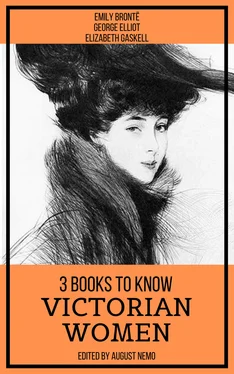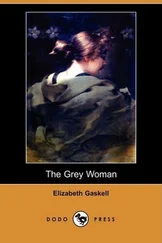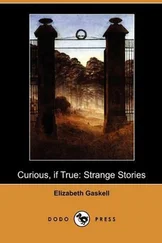"Or that seem sensible. Perhaps we don't always discriminate between sense and nonsense."
Dorothea felt that she was rather rude.
"Exactly," said Sir James. "But you seem to have the power of discrimination."
"On the contrary, I am often unable to decide. But that is from ignorance. The right conclusion is there all the same, though I am unable to see it."
"I think there are few who would see it more readily. Do you know, Lovegood was telling me yesterday that you had the best notion in the world of a plan for cottages—quite wonderful for a young lady, he thought. You had a real genus, to use his expression. He said you wanted Mr. Brooke to build a new set of cottages, but he seemed to think it hardly probable that your uncle would consent. Do you know, that is one of the things I wish to do—I mean, on my own estate. I should be so glad to carry out that plan of yours, if you would let me see it. Of course, it is sinking money; that is why people object to it. Laborers can never pay rent to make it answer. But, after all, it is worth doing."
"Worth doing! yes, indeed," said Dorothea, energetically, forgetting her previous small vexations. "I think we deserve to be beaten out of our beautiful houses with a scourge of small cords—all of us who let tenants live in such sties as we see round us. Life in cottages might be happier than ours, if they were real houses fit for human beings from whom we expect duties and affections."
"Will you show me your plan?"
"Yes, certainly. I dare say it is very faulty. But I have been examining all the plans for cottages in Loudon's book, and picked out what seem the best things. Oh what a happiness it would be to set the pattern about here! I think instead of Lazarus at the gate, we should put the pigsty cottages outside the park-gate."
Dorothea was in the best temper now. Sir James, as brother in-law, building model cottages on his estate, and then, perhaps, others being built at Lowick, and more and more elsewhere in imitation—it would be as if the spirit of Oberlin had passed over the parishes to make the life of poverty beautiful!
Sir James saw all the plans, and took one away to consult upon with Lovegood. He also took away a complacent sense that he was making great progress in Miss Brooke's good opinion. The Maltese puppy was not offered to Celia; an omission which Dorothea afterwards thought of with surprise; but she blamed herself for it. She had been engrossing Sir James. After all, it was a relief that there was no puppy to tread upon.
Celia was present while the plans were being examined, and observed Sir James's illusion. "He thinks that Dodo cares about him, and she only cares about her plans. Yet I am not certain that she would refuse him if she thought he would let her manage everything and carry out all her notions. And how very uncomfortable Sir James would be! I cannot bear notions."
It was Celia's private luxury to indulge in this dislike. She dared not confess it to her sister in any direct statement, for that would be laying herself open to a demonstration that she was somehow or other at war with all goodness. But on safe opportunities, she had an indirect mode of making her negative wisdom tell upon Dorothea, and calling her down from her rhapsodic mood by reminding her that people were staring, not listening. Celia was not impulsive: what she had to say could wait, and came from her always with the same quiet staccato evenness. When people talked with energy and emphasis she watched their faces and features merely. She never could understand how well-bred persons consented to sing and open their mouths in the ridiculous manner requisite for that vocal exercise.
It was not many days before Mr. Casaubon paid a morning visit, on which he was invited again for the following week to dine and stay the night. Thus Dorothea had three more conversations with him, and was convinced that her first impressions had been just. He was all she had at first imagined him to be: almost everything he had said seemed like a specimen from a mine, or the inscription on the door of a museum which might open on the treasures of past ages; and this trust in his mental wealth was all the deeper and more effective on her inclination because it was now obvious that his visits were made for her sake. This accomplished man condescended to think of a young girl, and take the pains to talk to her, not with absurd compliment, but with an appeal to her understanding, and sometimes with instructive correction. What delightful companionship! Mr. Casaubon seemed even unconscious that trivialities existed, and never handed round that small-talk of heavy men which is as acceptable as stale bride-cake brought forth with an odor of cupboard. He talked of what he was interested in, or else he was silent and bowed with sad civility. To Dorothea this was adorable genuineness, and religious abstinence from that artificiality which uses up the soul in the efforts of pretence. For she looked as reverently at Mr. Casaubon's religious elevation above herself as she did at his intellect and learning. He assented to her expressions of devout feeling, and usually with an appropriate quotation; he allowed himself to say that he had gone through some spiritual conflicts in his youth; in short, Dorothea saw that here she might reckon on understanding, sympathy, and guidance. On one—only one—of her favorite themes she was disappointed. Mr. Casaubon apparently did not care about building cottages, and diverted the talk to the extremely narrow accommodation which was to be had in the dwellings of the ancient Egyptians, as if to check a too high standard. After he was gone, Dorothea dwelt with some agitation on this indifference of his; and her mind was much exercised with arguments drawn from the varying conditions of climate which modify human needs, and from the admitted wickedness of pagan despots. Should she not urge these arguments on Mr. Casaubon when he came again? But further reflection told her that she was presumptuous in demanding his attention to such a subject; he would not disapprove of her occupying herself with it in leisure moments, as other women expected to occupy themselves with their dress and embroidery—would not forbid it when—Dorothea felt rather ashamed as she detected herself in these speculations. But her uncle had been invited to go to Lowick to stay a couple of days: was it reasonable to suppose that Mr. Casaubon delighted in Mr. Brooke's society for its own sake, either with or without documents?
Meanwhile that little disappointment made her delight the more in Sir James Chettam's readiness to set on foot the desired improvements. He came much oftener than Mr. Casaubon, and Dorothea ceased to find him disagreeable since he showed himself so entirely in earnest; for he had already entered with much practical ability into Lovegood's estimates, and was charmingly docile. She proposed to build a couple of cottages, and transfer two families from their old cabins, which could then be pulled down, so that new ones could be built on the old sites. Sir James said "Exactly," and she bore the word remarkably well.
Certainly these men who had so few spontaneous ideas might be very useful members of society under good feminine direction, if they were fortunate in choosing their sisters-in-law! It is difficult to say whether there was or was not a little wilfulness in her continuing blind to the possibility that another sort of choice was in question in relation to her. But her life was just now full of hope and action: she was not only thinking of her plans, but getting down learned books from the library and reading many things hastily (that she might be a little less ignorant in talking to Mr. Casaubon), all the while being visited with conscientious questionings whether she were not exalting these poor doings above measure and contemplating them with that self-satisfaction which was the last doom of ignorance and folly.
Читать дальше












